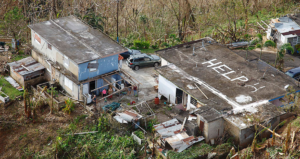Boston startup wants to climate-proof the internet
By Daniel Cusick on June 30, 2020
Internet interruptions caused by extreme weather events sap billions of dollars annually from the global economy and can interfere with the delivery of essential data and services by governments, utilities and first responders.
A Boston-based startup is trying to address that problem by applying climate resilience and adaptation principles to the internet, which experts say is vulnerable to climate change.
The firm, called Climate Resilient Internet LLC (CRi), last week rolled out a systems design platform that allows data to bypass traditional fiber optic lines — most of which are strung along utility poles or buried underground — and connect data centers to end users through a dedicated wireless network.
For now, the goal is to provide a backup platform in case a fiber optic line is severed during an emergency. But its supporters said the method ultimately could replace above- and below-ground connections.
Such systems differ from routers that allow for wireless internet use on home or business networks. Rather, they serve as internet superhighways and repositories between massive data centers and internet users.
The platform, which tailors existing technologies like antennas and radio receivers to meet much higher performance standards during extreme events, was developed by two tech entrepreneurs seeking to provide an “all-wireless complement” to traditional data delivery systems that rely on ground-level infrastructure.
Read more via E&E News >>
